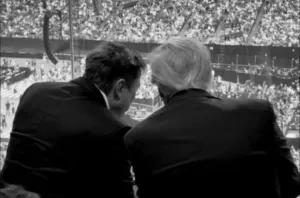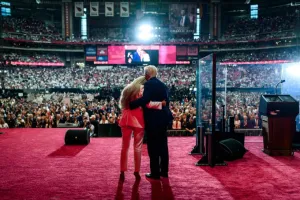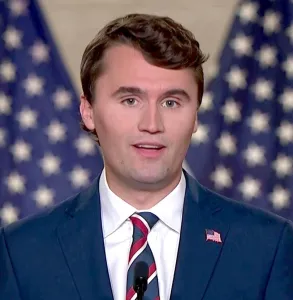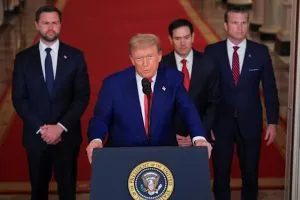Trump’s UN Speech Marred by Technical Glitches, Sharp Criticism of Global Body
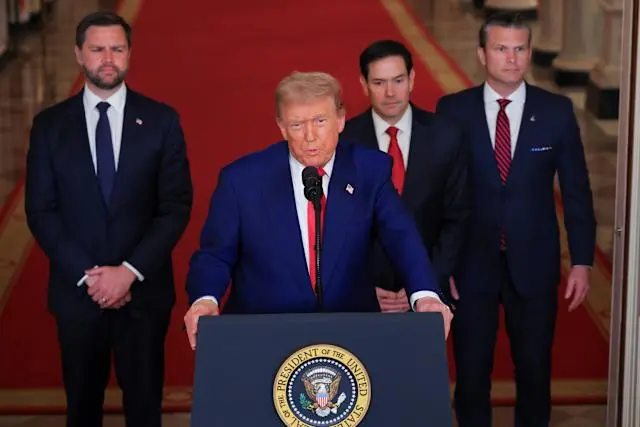
On September 23, 2025, President Donald Trump took the stage at the 80th United Nations General Assembly in New York, delivering a fiery speech that lambasted the UN for its perceived failures while grappling with unexpected technical mishaps that he wove into his critique. The address, marked by a malfunctioning escalator and a faulty teleprompter, became a platform for Trump to not only criticize the UN’s ineffectiveness but also to underscore his broader disdain for globalist institutions, all while maintaining his characteristic bravado.
As Trump approached the podium, he encountered an escalator that abruptly stalled halfway up, leaving him to climb the remaining steps manually. Later, during his speech, the teleprompter flickered and failed, forcing him to ad-lib portions of his remarks. Far from being rattled, Trump seized the moment, quipping to the audience, “All I got from the United Nations was an escalator that on the way up stopped right in the middle… and a teleprompter that didn’t work.” The crowd, a mix of world leaders and diplomats, responded with a smattering of laughter, though some appeared visibly uncomfortable. Trump leaned into the glitches, suggesting they were emblematic of the UN’s broader dysfunction, later adding, “You know, it made the speech more interesting.”
The president’s speech was vintage Trump, blending sharp rhetoric with bold claims about his administration’s achievements. He accused the UN of offering “empty words” on pressing global issues like migration and conflict resolution, asserting that the organization had failed to deliver meaningful solutions. Trump took particular aim at what he called the “con job” of climate change policies, arguing they burdened nations with impractical regulations while doing little to address real challenges. He also criticized open-border policies, claiming they undermined national sovereignty, a recurring theme in his domestic and foreign policy rhetoric.
Trump touted his record, declaring that his administration had ended “seven wars” and restored American strength on the global stage. He framed the U.S. as a leader that other nations should follow, rather than one beholden to international bodies like the UN. In a moment of spontaneity, Trump shared that he had run into Brazilian President Luiz Inácio Lula da Silva earlier that day and arranged a meeting for the following week, a move that underscored his preference for direct, personal diplomacy over institutional frameworks.
The technical mishaps, however, became a focal point of post-speech chatter. White House Press Secretary Karoline Leavitt hinted at possible sabotage, calling for an investigation into the escalator and teleprompter issues. “We’re not ruling anything out,” she said in a press briefing, suggesting that the glitches seemed suspiciously timed. The UN, however, swiftly pushed back. A spokesperson clarified that the escalator had stopped due to a safety mechanism inadvertently triggered by a videographer from Trump’s own entourage, not UN staff. As for the teleprompter, the UN emphasized that it was operated by the White House, and their own equipment had functioned flawlessly during the event. The escalator, they noted, was reset within minutes, causing no significant disruption.
Trump, undeterred, took to Truth Social later that day to spin the incidents in his favor. “The UN’s escalator broke, their teleprompter failed, but my speech was a HIT!” he posted, claiming the mishaps added an authentic flair to his address. His supporters echoed this sentiment, praising his ability to turn adversity into a rhetorical jab at the UN’s expense. Online, his base celebrated the moment as proof of his resilience, with memes circulating that juxtaposed the stalled escalator with captions about the UN’s “broken” system.
Critics, however, saw the speech as another example of Trump’s divisive approach to diplomacy. They argued that his mockery of the UN and its mission undermined international cooperation at a time when global challenges like climate change and migration required collective action. The decision to cut $1 billion in UN funding earlier in his term already strained relations with the organization, and his latest remarks did little to mend that rift. Some diplomats in attendance described the speech as needlessly antagonistic, with one anonymously noting that Trump’s focus on technical glitches distracted from substantive policy discussions.
Despite the controversy, Trump’s performance resonated with his core audience, who viewed his unpolished style and willingness to confront the UN as a strength. The speech, glitches and all, reinforced his narrative as an outsider challenging a sclerotic global establishment. For Trump, the escalator’s halt and the teleprompter’s failure were not just inconveniences but opportunities to double down on his message: the UN, like much of the global order, was faltering, and only bold leadership could set things right.
As the General Assembly continued, the incident sparked broader discussions about the UN’s role in a world increasingly skeptical of multilateral institutions. For Trump, the day was a win—a chance to dominate headlines, rally his base, and take a swipe at an organization he’s long viewed with suspicion. Whether the escalator and teleprompter glitches were mere accidents or, as some of his allies suggested, something more sinister, they ensured that Trump’s UN appearance would be remembered not just for what he said, but for how he said it.
